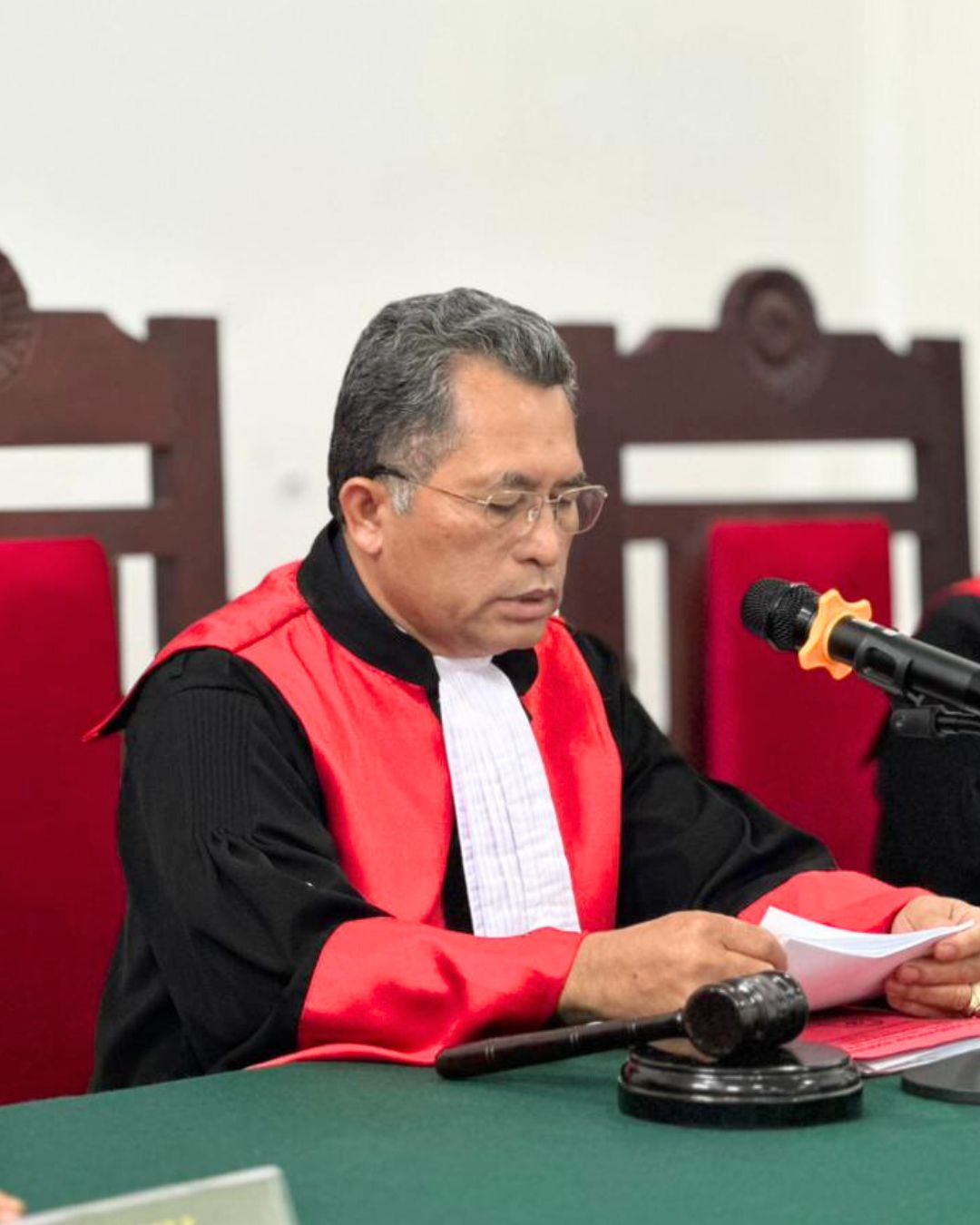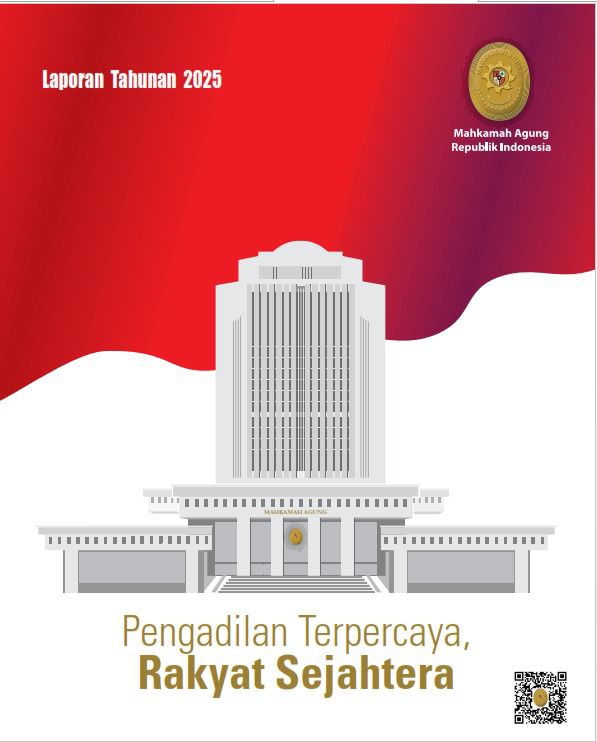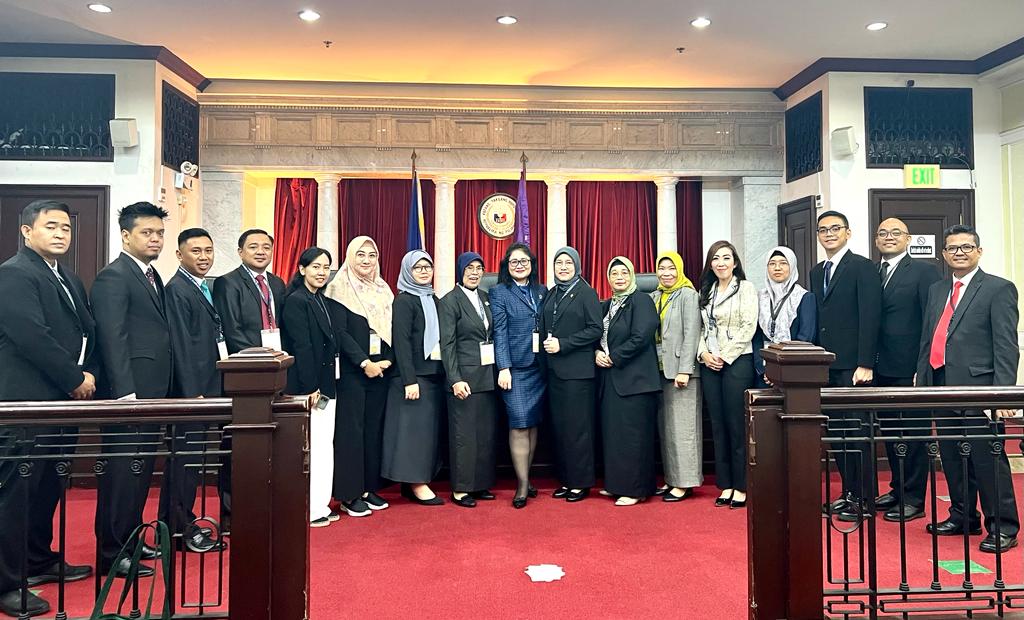As law students, we have been taught by our lecturer during college that courts have two main jurisdictions over civil and commercial cases namely absolute and relative. The term absolute denotes the specific competence that a court holds regarding the substantive matters that exist between different judicial bodies, a concept commonly known as attributive jurisdiction (Subekti, 1977:28). This highlights the unique ability of a court to exercise its authority over legal issues that are presented before it. Indonesian Supreme Court is structured on four primary courts, which include the General, Religious, Administrative, and Military tribunals. Conversely, the concept of relative jurisdiction pertains to the capacity of the same courts to resolve legal disputes that are determined by territorial boundaries, which is often referred to as distributive jurisdiction in legal terminology.
Are there any other jurisdictional concepts that may impose restrictions on the Court's jurisdiction? The answer is yes; there is a concept known as Specific Jurisdiction, executed by an Extra Jurisdictional Body whose powers are conferred by law (Yahya Harahap, 2017:233). While the idea of this jurisdiction shares similarities with the concept of absolute jurisdiction, there exists a fundamental difference between the two in theory. The distinction lies in the institution that has the power to examine the case, which exists outside the four main judicial courts structured under the Supreme Court. The institution being referred to is the Arbitration. Arbitration represents a structured legal process in which parties engaged in a dispute agree to refer their case to a chosen tribunal, composed of one or more arbitrators who maintain independence and impartiality. These arbitrators are appointed directly by the involved parties or their representatives, which purposefully eliminates the court’s jurisdiction.
Since the Dutch colonial era, Indonesia has recognized arbitration within its legal system, historically using the term ‘Juru Pisah’ to describe this process. Article 377 HIR/705 RBg outlines the regulations concerning the ‘Juru Pisah’, indicating that Indonesians and East Asians who wish to resolve their disputes through this method must adhere to the judicial procedures established for Europeans. According to this article, parties who opt for 'Juru Pisah' or arbitration to resolve their disputes are required to follow the provisions set forth in the Reglement of de Burgerlijk Rechts Vordering (RV) (S. U. T. Girsang, 1992:1). Within the RV, the rules governing arbitration are clearly defined in articles 615 to 651. With the promulgation of Law Number 30 of 1999 concerning Arbitration and Alternative Dispute Resolution, the arbitration provisions specified in the RV have been superseded and deemed void.
Baca Juga: The Compendium of Good Practices in Adjudicating Trafficking in Persons (TIP) Cases in ASEAN
The next question is which rule restricts the court's jurisdiction to hear a case in relation to the concept of Specific Jurisdiction? In the realm of arbitration, this provision is reflected in Article 3 of Law Number 30 of 1999, which states that “The District Court lacks the jurisdiction to resolve disputes involving parties that are subject to an arbitration agreement.” Article 11 paragraph (1) then emphasizes this by stating that, "When a written arbitration agreement is in place, the parties forfeit their right to bring any conflicts or differing opinions specified in the agreement before the District Court." Then, paragraph (2) imposes a responsibility on the Court to refrain from hearing a case, which states that, "The District Court is obliged to refuse and will not intervene in a dispute that has been conclusively addressed through arbitration." The arbitration agreement serves as the primary factor in establishing the Court's jurisdiction to review a case, according to these provisions.
What are the types of agreements to arbitrate? In what ways do the parties and the court frequently overlook this clause? Typically, a modern or international commercial contract tends to include an arbitration clause that outlines the parties' commitment to resolve disputes through arbitration. Before any conflicts arise, the involved parties establish and agree upon arbitration clauses as part of the contractual agreement, which inherently anticipates future circumstances. While the parties naturally wish to prevent any disputes, they acknowledge that if one arises, it will be addressed through arbitration instead of court litigation. In addition to the more widely accepted forms of arbitration agreements, there exists a second, less frequently seen type where the parties involved come to a mutual understanding to submit an existing dispute to the arbitration process. This particular type of agreement is often referred to as a ‘submission agreement’. The details provided will typically exceed those found in an arbitration clause, as it allows for the selection of a tribunal and a comprehensive description of the dispute and the proposed methods for resolution once a conflict has emerged. Additionally, one can recognize a third category of arbitration agreement, which pertains to agreements to arbitrate that originate from international instruments, such as treaties, and are frequently labeled as 'investment arbitration. This newly established type of arbitration agreement grants qualifying investors, who hold qualifying investments, the ability to initiate international arbitration proceedings against a sovereign state, even if no contractual agreement exists between them.
Thus, how this agreement to arbitrate is being frequently overlooked in practice? For the parties involved it usually happens because of the lack of awareness. A significant number of parties, especially those who are individuals or operate medium businesses, frequently do not comprehend what arbitration agreements entail or recognize their relevance during the contract-signing process. Even when they are assisted by lawyers, these clauses are frequently buried deep within lengthy and ‘boilerplate’ contracts (usually in consumer or employment agreements) making them easy to overlook. Moreover, during contract negotiations, the emphasis is typically on the main deal such as price, scope of work, and times-not a dispute mechanism, which may seem less urgent. On top of that, parties tend to be optimistic and assume there won’t be any disputes, so they don’t prioritize how they would resolve one.
Conversely, judges sometimes neglect this clause due to their lack of diligence in examining the contract, coupled with the defendant's omission to contest the court's absolute jurisdiction. In addition, the parties indicated that they had set aside the arbitration clause by agreeing to take the case to the Court, and throughout the trial, the defendant did not raise any challenges. In relation to this issue, the Supreme Court has articulated its legal stance in Supreme Court Decision Number 3179/K/PDT/1984, dated May 4, 1988, stating that "in cases involving an arbitration clause, the District Court does not have the jurisdiction to examine and hear the case and the arbitration clause can only be waived through a mutual agreement that both parties must sign explicitly." Based on the above jurisprudence, if the parties wish to waive the arbitration agreement, it is not enough to just have an agreement stated verbally or through actions in court. Before the case is tried by the Court, the parties must first make a written agreement stating that the arbitration clause no longer has legal power.
After all, it is essential for judges to initially assess the contractual agreement between the parties, and if an arbitration clause is identified, they are empowered by law to utilize their ex-officio authority to declare that the Court is not competent to adjudicate, as stipulated in Article 134 HIR/160 Rbg and 132 RV. Additionally, the norms established in Supreme Court Decision Number 317K/PDT/1984, issued on May 9, 1984, also support this viewpoint, indicating that if the defendant fails to raise an objection concerning the absolute jurisdiction derived from the arbitration clause, the judge is obligated to declare, on their own initiative, that the court lacks the jurisdiction to examine and hear the case. (Research and Development/fac)
References:
Subekti, Hukum Acara Perdata, Bina Cipta, Jakarta, 1977.
Yahya Harahap, Hukum Acara Perdata Edisi Kedua, Sinar Grafika, Jakarta, 2017.
S. U. T. Girsang, Arbitrase Jilid I, Mahkamah Agung RI, Jakarta, 1992.
Baca Juga: Success Story, Gender Based Violence Courts In Pakistan
Blackaby, N., Partasides, C., Hunter, M., & Redfern, A. Redfern and Hunter on international arbitration 6th ed, Wolters Kluwer Law & Business, 2015.
Untuk Mendapatkan Berita Terbaru Dandapala Follow Channel WhatsApp : Info Badilum MA RI
















